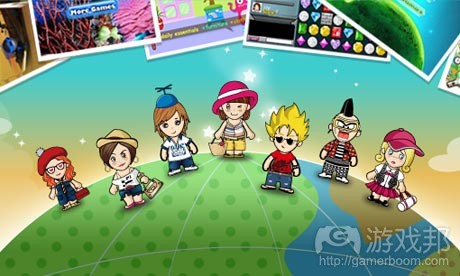供开发者参考的几点社交游戏制作建议
作者:Oscar Clark
4月28日,众多有抱负和经验丰富的游戏开发者将聚集在Pinewood Studios完成一个简单的任务:在24个小时的时间里尽量制作完成优质的游戏。然而,他们应当努力去制作哪种游戏呢?
过去数年来,手机游戏市场发生了戏剧性的改变,从原本的预付费游戏转变为免费游戏。那么,刚刚出道的新开发者如何才能制作出一款免费增值游戏呢?他们应当去何处寻找灵感?他们的游戏设计中应当包含哪些重要元素和功能?
对于这些问题,最简单的答案是制作玩家可以分享的有趣内容。这样的答案或许显得不言而喻。但是,我们投放到Facebook上的休闲社交游戏风格往往无法吸引许多设计师的目光,因为它们的情感价值似乎不及硬核游戏。
休闲社交游戏的设计需要针对普通大众玩家,但这不是它们显得平淡无奇的借口,它们仍然需要让玩家产生丰富的想象。最重要的是,它们无法采用模糊化主题或惩罚性学习曲线,因为这会导致玩家在开始享受到乐趣前便离开游戏。
休闲游戏指的是什么呢?用简单且易上手的玩法以及及时而富有吸引力的奖励来营造乐趣。它们不需要玩家拥有或训练复杂的技能,也不会期望你在游戏中投入许多个小时(游戏邦注:事实上许多休闲游戏已经做到了这点)。休闲游戏会创造让玩家不断回到游戏中获取更多奖励的原因。
与其他人分享体验是另一大挑战。许多人认为使用异步消息推送的社交游戏并不具有很强的社交性,至少同即时在线游戏相比是这样的。毕竟,如果你没有与其他人同时玩游戏,就谈不上真正的分享。
我对这种想法发起挑战。当我访问好友的农场或城市,然后与这些空间展开颇有意义的互动时,我是在向好友发送情感数据。这是隐藏在我们之间的好友关系以及游戏本质背景下的信息。没有任何威胁性,而且也没有获得回报的直接期望。但是如果我们这么做,能够获得很丰厚的奖励。
当你在制作游戏时,你应当考虑以下5个问题:
1、谁会玩你的游戏?他们从游戏中哪些地方感受到娱乐性?
2、玩家学习机制和体验到乐趣的难易程度如何?
3、玩家要如何分享他们的体验?尤其在他们没有同时在线的情况下。
4、他们为什么要不断回到游戏中?
5、哪些虚拟商品会让这款游戏玩起来更加有趣?
如果你能够认真思考回答所有这些问题,就可能谱写游戏行业的下一个成功故事!
游戏邦注:本文发稿于2012年4月27日,所涉时间、事件和数据均以此为准。(本文为游戏邦/gamerboom.com编译,拒绝任何不保留版权的转载,如需转载请联系:游戏邦)
Simple advice for creating social games
Oscar Clark
On Saturday 28 April, aspiring and experienced game developers will gather at Pinewood Studios for GameHack with a simple mission: to make the best game possible in just 24 hours. But what kind of game should they try to create?
The market for mobile games has changed dramatically over the last year, moving from premium to free-to-play games. So what does a budding new developer have to do to make a freemium game? Where should they look for inspiration? And what important elements and features do they need to include in their game’s design?
The simple answer is to make something fun, which players can also share. This may seem self-evident. However, the types of casual social games we associate with Facebook often don’t appeal to many game designers, because they don’t appear to share the same emotional values as hardcore games.
Casual social games are designed for a mass audience but that’s no excuse for them to be bland – they still have to capture the imagination. Most importantly, they can’t afford to alienate potential players with obscure themes or punishing learning curves before they can start to enjoy the play.
What does casual gaming mean? It’s about creating joy from simple patterns of accessible play with immediate and compelling rewards. They don’t make demands of the player to own or set up complex technology, nor should they expect you to set aside many hours to each playing session (although many players will). Casual games all create reasons for the player to come back time and again to gather even more rewards.
Sharing the experience with other people is another challenge. Social games with their asynchronous (ie not real-time) newsfeeds have been accused of being not very sociable, at least compared to live, real-time games. After all, are you really sharing if you don’t actually play together, at the same time, or if you trade your friends as resources for your gameplay?
I challenge this idea. When I visit my friends’ farms or cities and then meaningfully interact with those spaces I am sending a packet of emotional data to my friend. This is a message wrapped up in the context of both our relationship as friends, and the nature of the game as well. It’s non-threatening and there is no direct expectation of reciprocation. But if we do, it can be very rewarding.
When it comes to creating your own game, you should consider the following five questions:
• Who will be playing your game and why will it be entertaining?
• How easy is it for the players to learn the mechanics and get to the fun fast?
• How can players share their experience? – especially if they are not online at the same time
• Why would they come back and play time and again?
• What virtual goods would make this game even more entertaining to play?
If you can answer all these questions convincingly, you might be the next big success story in games! (Source: The Guardian)








































 闽公网安备35020302001549号
闽公网安备35020302001549号